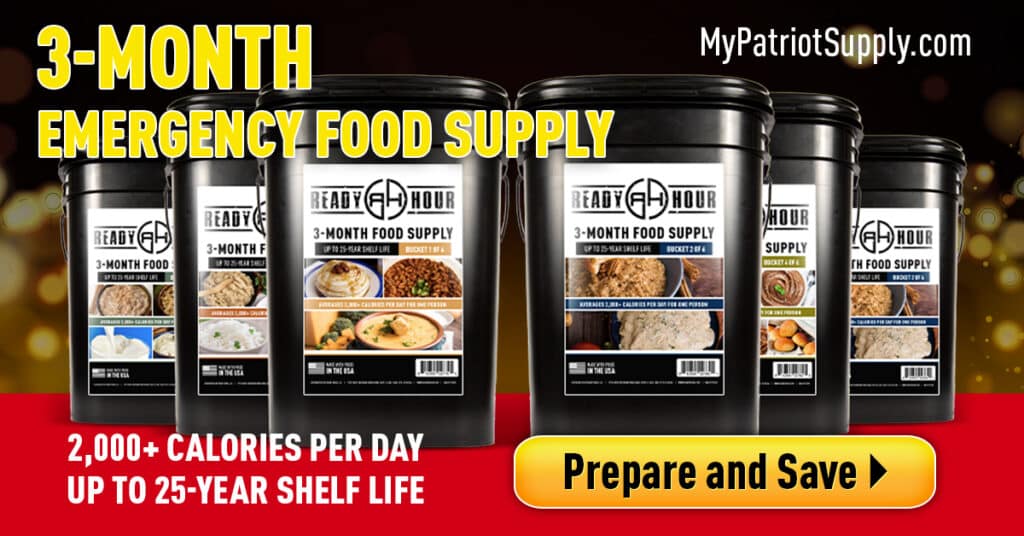In times of crisis or natural disasters, having a well-stocked emergency food supply can make all the difference for you and your family. This guide is designed to help you create a three-month emergency food supply that's tailored to your needs, ensuring you have enough nutritious and shelf-stable foods on hand in case of an unforeseen event.
Assessing Your Family's Needs
Before creating your emergency food supply, consider the dietary restrictions and preferences of your family members. Take into account allergies, medical conditions, and age-related nutritional requirements when selecting items. Additionally, plan meals based on how many people you need to feed and their daily caloric needs.
Choosing the Right Foods
Selecting the right foods for your emergency supply is crucial; they should be non-perishable, require minimal preparation, and provide adequate nutrition. Aim for a balance of carbohydrates, proteins, and fats to ensure proper nourishment during a prolonged crisis.
Grains
Grains are a vital part of any emergency food supply due to their long shelf life and high caloric content. They serve as excellent sources of energy and can be easily stored in large quantities. Essential grains to include in your food storage are:
- Wheat: A versatile grain that can be ground into flour for baking bread and other goods
- Rice: Easily digestible and available in various forms, including white, brown, and parboiled rice
- Oats: Whole oats are perfect for making oatmeal, granola, and even grinding into flour
- Cornmeal: A gluten-free alternative that can be used in baking and to make polenta
- Pasta: Available in various shapes and sizes, it can be paired with numerous sauces for a satisfying meal
Protein
Protein is crucial for maintaining muscle mass and overall health during an emergency. Sources of protein to consider for your food supply include:
- Canned meats: Tuna, chicken, and turkey are excellent options as they require no refrigeration
- Dried or canned beans: Red, black, pinto, and navy beans offer protein, fiber, and essential nutrients
- Textured vegetable protein (TVP): A soy-based product that's easy to rehydrate and use in place of meat
- Nuts and seeds: Almonds, peanuts, sunflower seeds, and pumpkin seeds provide healthy fats and protein
- Powdered milk or milk alternatives: Useful for cooking and providing calcium and other nutrients
Fruits and Vegetables
Including fruits and vegetables in your emergency food supply ensures you get vital vitamins and minerals. Opt for dried, freeze-dried, or canned varieties. Some nutritious choices are:
- Dried fruit: Raisins, apricots, and apple slices offer natural sugars for energy and fiber
- Freeze-dried fruits and vegetables: These lightweight options retain their nutritional value and taste
- Canned vegetables: Green beans, peas, and carrots are shelf-stable and versatile for cooking
- Canned fruits: Pineapple, peaches, and mixed fruit in juice offer a natural source of vitamins
Fats and Oils
Fats and oils provide essential fatty acids and are a concentrated source of energy. They also contribute to satiety, making you feel fuller for longer. Some options to include in your food supply are:
- Cooking oils: Olive, canola, or coconut oil are versatile choices for cooking
- Peanut butter: A high-calorie, protein-rich spread that pairs well with crackers or bread
- Coconut cream: Useful for adding richness to curries, soups, and desserts
- Nuts and seeds: As mentioned earlier, these provide healthy fats along with protein and fiber
Water and Beverages
Having access to clean drinking water is crucial during an emergency. Store at least one gallon of water per person per day, accounting for drinking, cooking, and hygiene needs. In addition to water, consider including other shelf-stable beverages such as:
- Powdered milk or milk alternatives
- Instant coffee, tea bags, or powdered drink mixes
- Electrolyte powders or sports drinks to replenish lost nutrients during high-stress situations
Maintaining Your Food Supply
Once you've established your three-month emergency food supply, it's essential to keep it updated and organized. Rotate items based on expiration dates, replacing older products with newer ones to ensure freshness. Also, store food in a cool, dry place away from direct sunlight to prolong its shelf life.
By creating a well-rounded emergency food supply, you can have peace of mind knowing that your family is prepared for any situation. Focus on including a variety of grains, proteins, fruits and vegetables, fats and oils, and shelf-stable beverages to ensure proper nourishment during challenging times.


